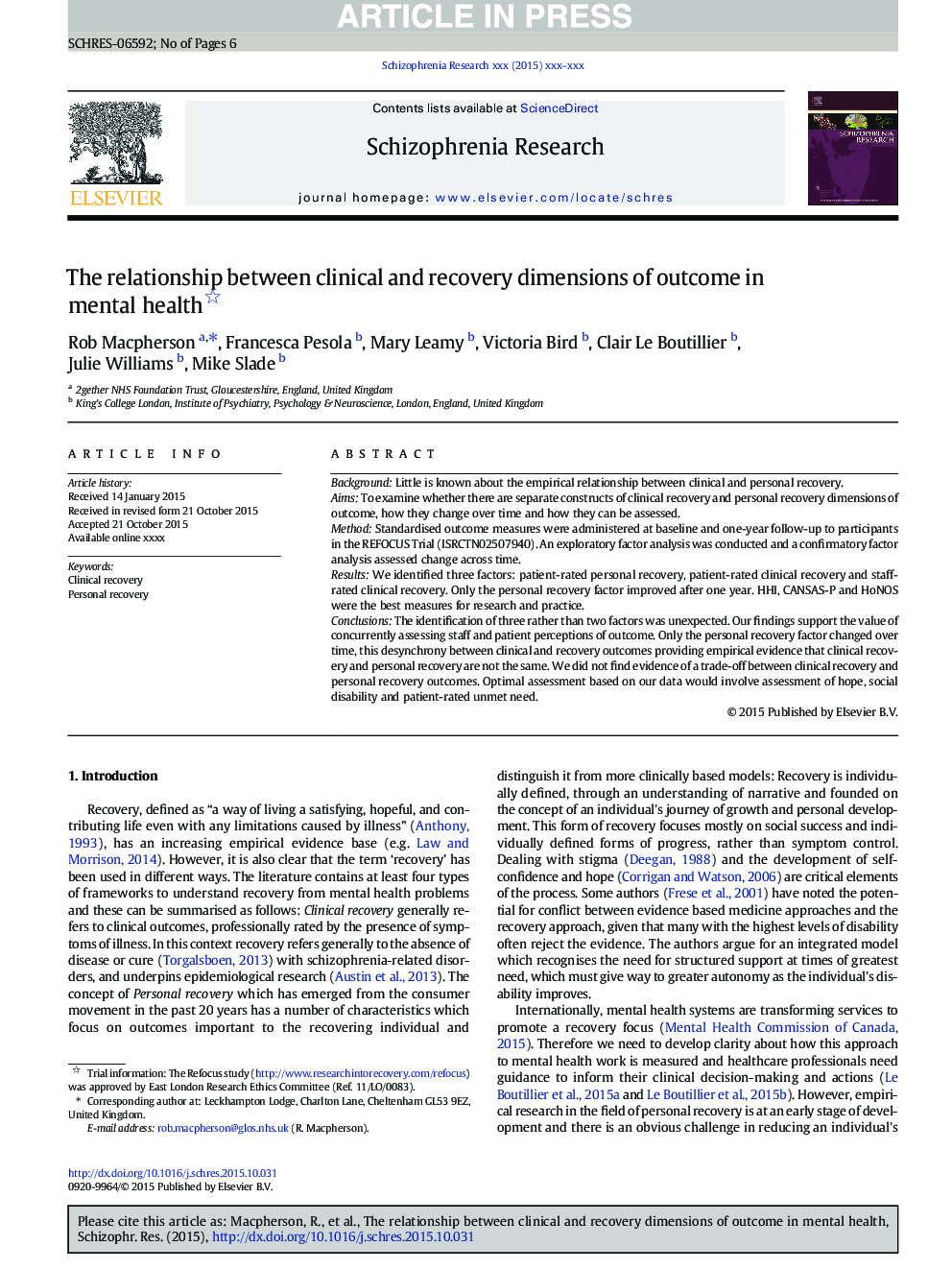| Article ID | Journal | Published Year | Pages | File Type |
|---|---|---|---|---|
| 6822653 | Schizophrenia Research | 2016 | 6 Pages |
Abstract
The identification of three rather than two factors was unexpected. Our findings support the value of concurrently assessing staff and patient perceptions of outcome. Only the personal recovery factor changed over time, this desynchrony between clinical and recovery outcomes providing empirical evidence that clinical recovery and personal recovery are not the same. We did not find evidence of a trade-off between clinical recovery and personal recovery outcomes. Optimal assessment based on our data would involve assessment of hope, social disability and patient-rated unmet need.
Keywords
Related Topics
Life Sciences
Neuroscience
Behavioral Neuroscience
Authors
Rob Macpherson, Francesca Pesola, Mary Leamy, Victoria Bird, Clair Le Boutillier, Julie Williams, Mike Slade,
